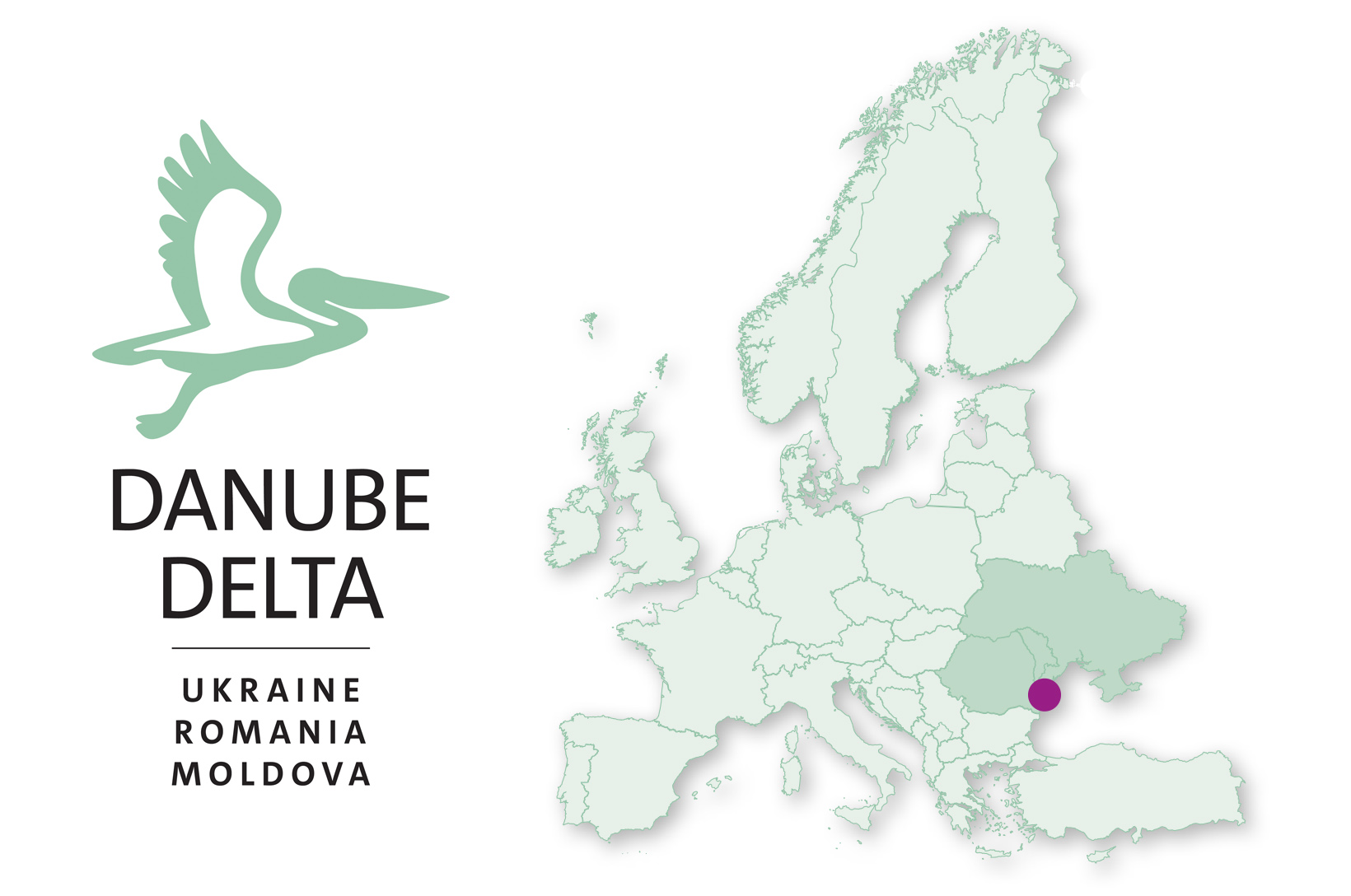Despite the ongoing impact of the Russian invasion, rewilding in the Danube Delta continues to have a positive impact on terrestrial and freshwater ecosystems – a testament to the resilience of nature and local rewilding teams.
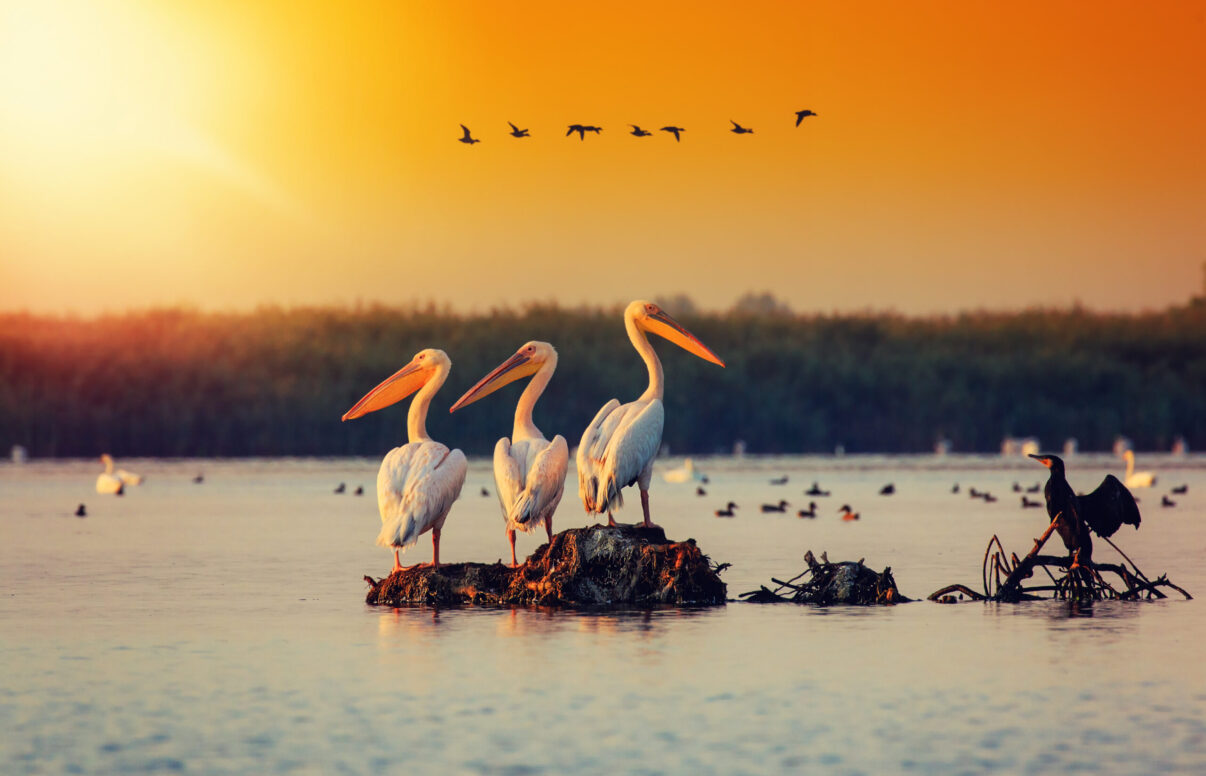
Overcoming adversity
Nature has long been a silent casualty of war. From pollution and habitat destruction to the collapse of entire management systems, the environmental impact of armed conflict can be devastating, wide-reaching, and hugely difficult to reverse.
Rewilding Europe’s cross-border Danube Delta rewilding landscape, which is located partly in southwest Ukraine, is situated well away from the main areas of fighting. Nevertheless, the ongoing conflict has thrown up a whole range of logistical, human resource, and access issues.
“Following the war, half the Rewilding Ukraine team relocated overseas, while much of the outer Ukrainian Danube Delta, where we have released animals, is currently off limits,” says Oleg Dyakov, a rewilding officer with the Rewilding Ukraine team, which continues its efforts to recover 40,000 hectares of wetland and steppe in the delta, with the support of the Endangered Landscapes and Seascapes programme. “In spite of this, we concentrated our efforts on the things we and our partners could do.”
A choked ecosystem
The 600,000-hectare Danube Delta is a complex, ever-shifting mosaic of channels, islands, forest, marshes and reedbeds that represent Europe’s greatest natural wetland. Yet large-scale hydro-engineering work carried out in the twentieth century has had a hugely negative impact, altering natural water flow and sedimentation patterns, and diminishing the ability of the delta to recycle nutrients.
Ongoing work carried out by the Rewilding Ukraine team is now breathing new life into the delta’s former polders, lakes and communities by restoring connectivity and water flow. In 2022, such efforts focused on restoration key natural processes, such as flooding and also natural grazing, particularly on Ermakiv Island – where 300 metres of dyke were removed – and on the Danube lakes.
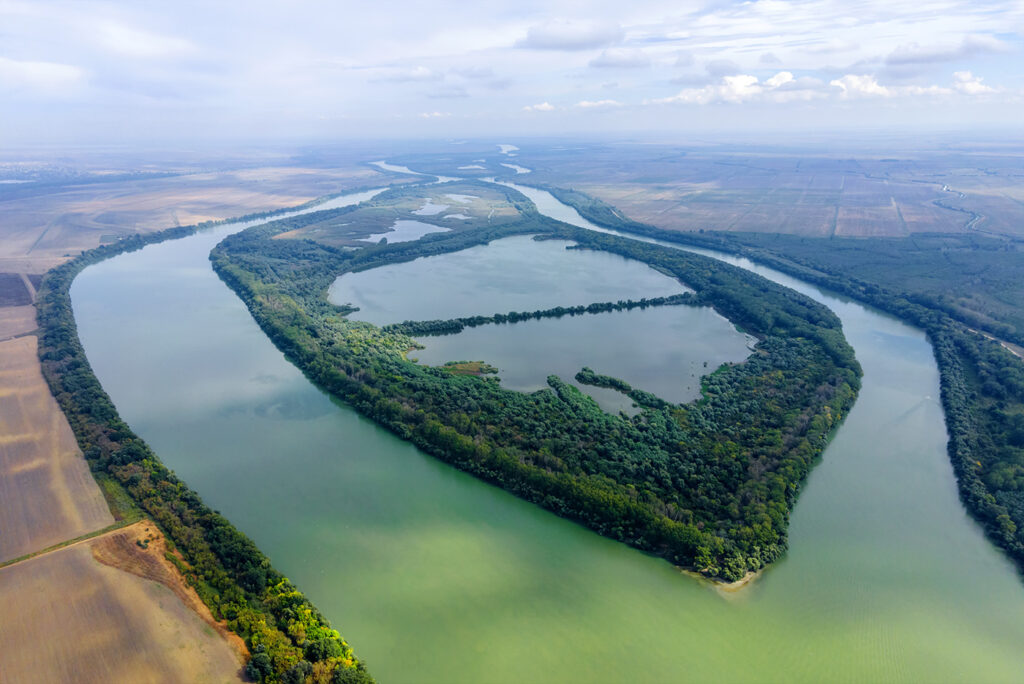
Towards a dynamic delta
Lake Katlabuh is one of many “limans” in the delta. These lakes and marshes, which are separated from the main channels of the Danube, are naturally home to a wide range of fish species and thriving populations of birds. In the 1960s, however, a dyke and a series of sluices were constructed, effectively isolating the lake and turning it into a reservoir. Over the years the level of water dropped, the water stagnated, and fish productivity and biodiversity markedly declined.
In 2022, the Rewilding Ukraine team continued work to reconnect Lake Katlabuh with the Danube River and surrounding area. By ensuring the regular exchange of water, this will make the lake water less salty, diversify and boost fish stocks, and help local farmers and fishermen.
More work was also carried out to restore connectivity on Lake Kartal and adjacent wetlands. These efforts have already had a noticeably positive impact, restoring water levels and the health and resilience of the ecosystem, and providing water resources to the local population.
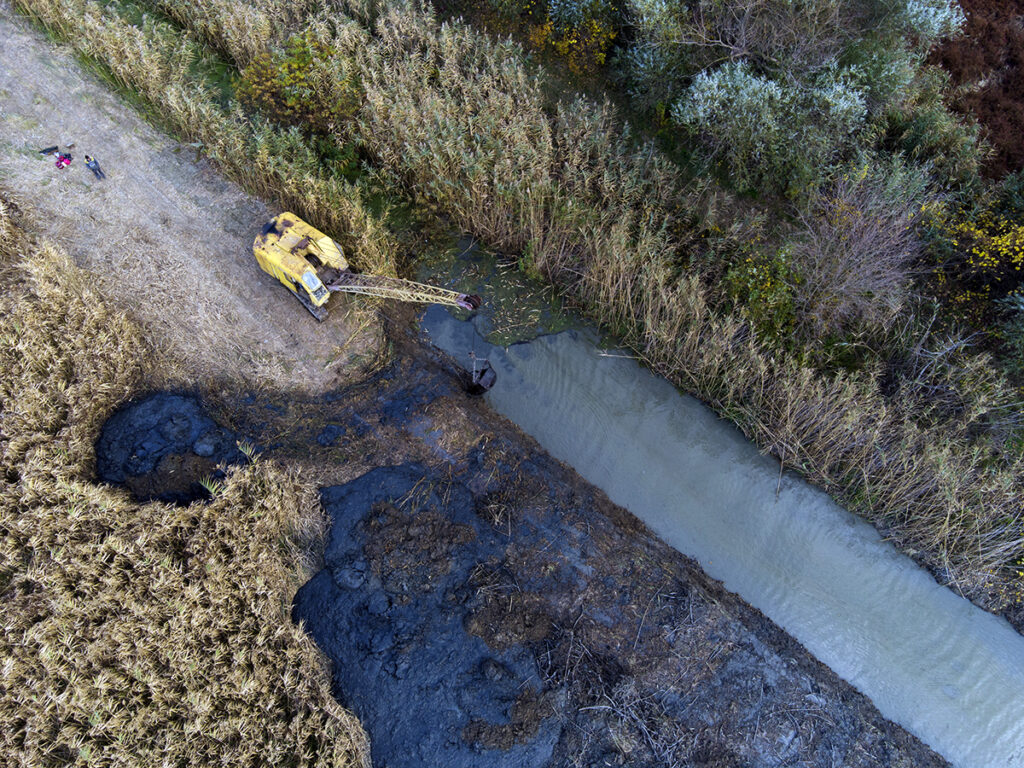
Pelican progress
Coordinated by Rewilding Europe, the Pelican Way of LIFE initiative kicked off in late 2019, funded by the European Commission and Arcadia Fund. Over the last few years, as part of the initiative, the Rewilding Ukraine team have constructed a number of artificial nesting platforms in different locations to encourage the birds to breed and support the comeback of these gentle giants. Efforts to restore natural water flow will significantly improve the chances of this happening.
A steppe in the right direction
As part of the extended Danube Delta rewilding landscape, the 5200-hectare Tarutino Steppe is one of the very few remaining areas of steppe in Ukraine and Europe and is home to a wide range of rare flora and fauna. Since 2019, the Rewilding Ukraine team have been working to preserve and enhance the steppe.
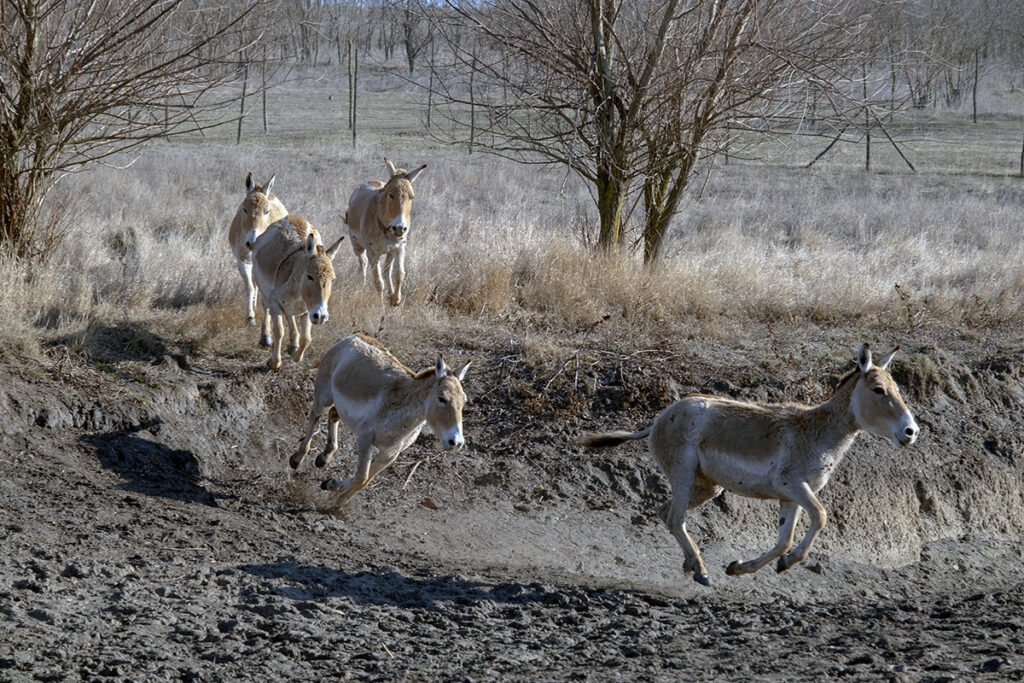
In 2022, these efforts continued with the release of herds of fallow deer and kulan (wild donkey). In the early spring, a foal was born to a herd of kulan that had previously been released onto the steppe by the rewilding team – almost certainly the first free-roaming kulan born in Ukraine in over 200 years.
A group of steppe marmots released in 2021 had at least six pups in 2022. And in December, continuing the rodent theme, a family of three European hamsters were released onto the steppe – both these and the marmots are an ecologically important part of local food chains, and further releases are planned.
Last but not least, a collaboration between Rewilding Ukraine and a team of scientists saw a study on the carbon uptake and storage potential of dry grassland ecosystems kick off in September, with a focus on Tarutino and the Askania Nova Biosphere Reserve.
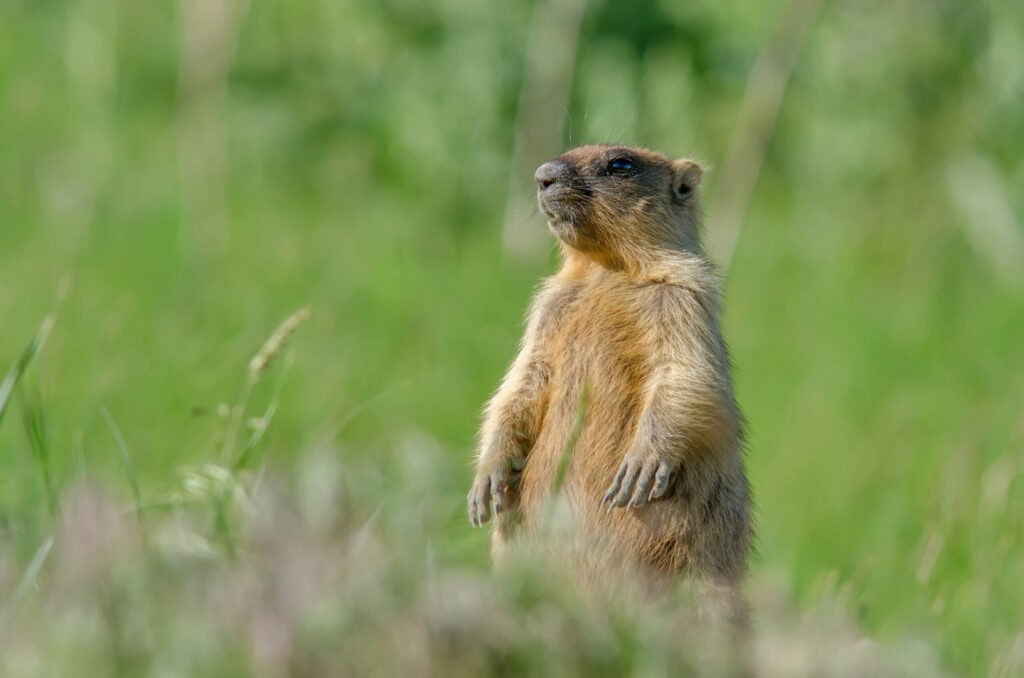
Looking to the future
There is still no sign of the brutal and unjustified Russian invasion of Ukraine coming to an end. Yet despite the challenges arising from the conflict, the rewilding agenda in the Danube Delta is moving forwards. In 2022, the Danube Delta rewilding landscape was recognised by the United Nations as a European nature restoration showcase – a fine testament to the team’s efforts.
While there are concerns about how Ukraine will rebuild itself after the war is over, Mykhailo Nesterenko, Rewilding Ukraine Executive Director, remains positive.
“As our own rewilding efforts in the delta have shown, Ukrainian nature is as resilient as the people of Ukraine, and they both depend on each other. Once the war is over, I’m confident they will both recover.”

Mykhailo Nesterenko
Team Leader Rewilding Ukraine
Want to know more?
This blog is taken from a longer story entitled “Resilient Rewilding”, which featured in the Rewilding Europe Annual Review 2022.
Download a PDF of the story Or check out our Annual Review 2022

